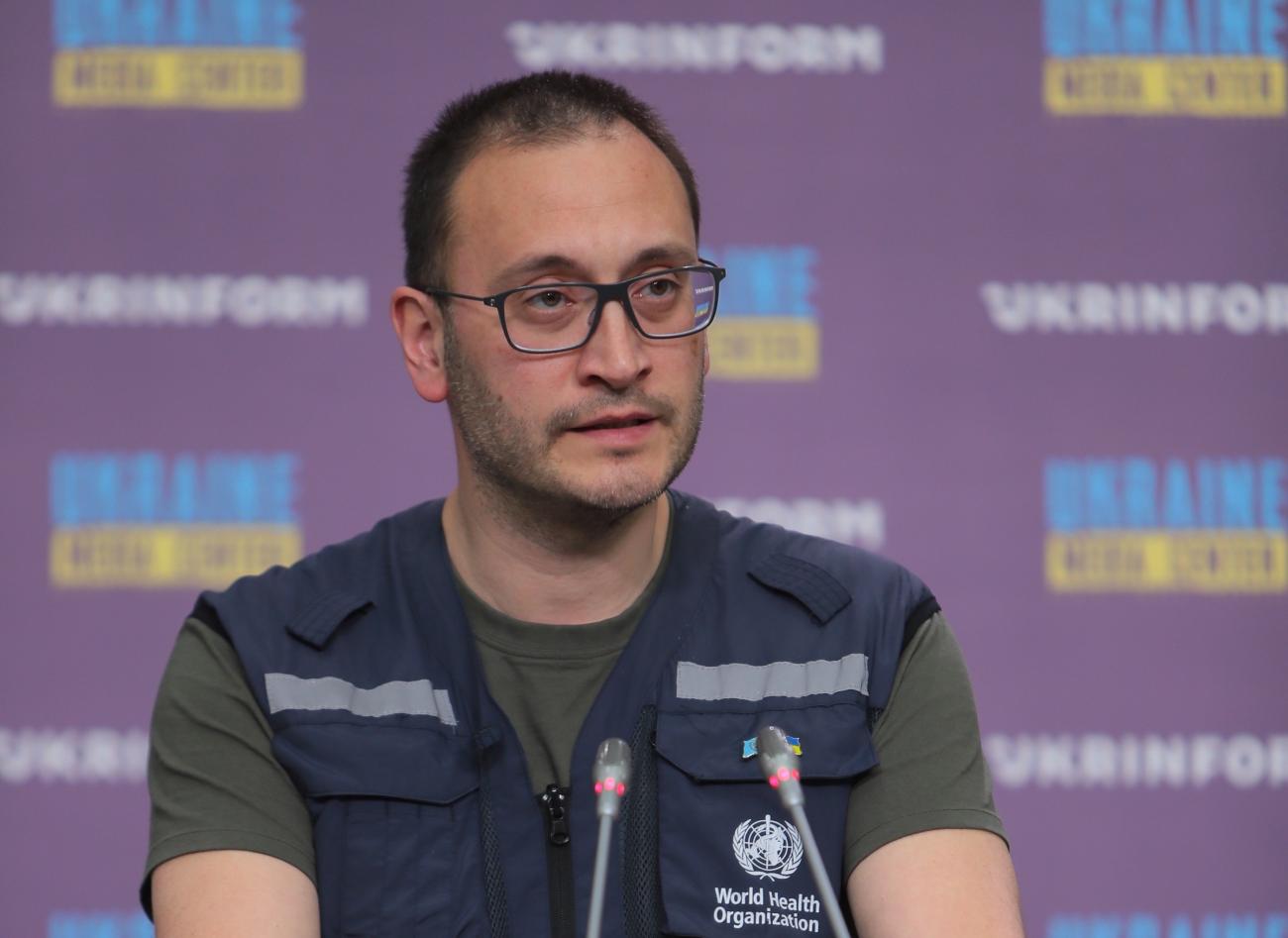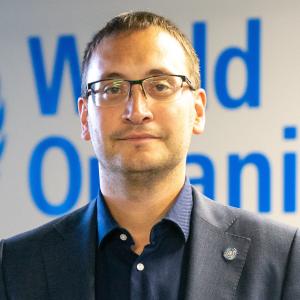The work of WHO and its partners over the past 75 years to advance public health has positively impacted the lives of people worldwide. From the development of life-saving vaccines against deadly diseases like smallpox, polio, and measles, to the discovery of present-day antibiotics, and the global treaty to stop tobacco use, their accomplishments have made a significant impact on the world. Additionally, new diagnostics, medicines, and treatments for tuberculosis, HIV, cancer, dementia, and many other diseases and conditions have become available, further improving global health.
As we reflect on the past 75 years, we have much to be proud of. However, as WHO Director-General Dr. Tedros Adhanom Ghebreyesus reminds us, it's not the past 75 years that matter, but the next 75. This message is particularly relevant in Ukraine, where we can look back with pride at our past successes while also acknowledging our present challenges and looking forward with hope.
Despite facing over 900 attacks on health care in Ukraine since 24 February 2022, WHO, alongside healthcare authorities and dedicated health workers, have been working tirelessly to ensure Ukrainians in the country receive essential health services. The entire health system has shown remarkable resilience and dedication during these trying times. WHO remains committed to ensuring the health system is operational and that all possible efforts are made so that the system can recover quickly.
In Ukraine, WHO has prioritized three key areas of healthcare: emergency health response, recovery of the health system, and health reforms. These areas serve as the main pillars of our efforts today and are fundamental to the future functioning of the entire country's health system. By focusing on these crucial areas, we can continue to improve the health and well-being of all people in Ukraine, even in the face of adversity.
WHO's emergency health response is one of the priorities in Ukraine due to the ongoing invasion by the Russian Federation. One in five people throughout the country is struggling to access essential medicines, while in areas of occupation and active conflict, that number increases to one in three. To support the health system during this challenging time, WHO has provided critical assistance, including delivering over 3000 metric tons of supplies, and training more than 10,000 healthcare workers in mass casualty management techniques. Through our health emergency response efforts, we have reached over 8 million people in 2022 and that continue now in 2023 to reach more. Further to this, we have made mental health a vital component of the health response. WHO, along with the First Lady of Ukraine, Olena Zelenska, the Office of the President, and the MoH, have launched a critical initiative for mental health and psychosocial support (MHPSS), prioritising numerous actions for a system-wide response to the mental health needs of Ukrainians.
WHO's second priority in Ukraine is health system recovery, which goes beyond rebuilding physical medical facilities. We aim to support the country to restore essential services such as rehabilitation, primary health care, public health surveillance, and more, critical for overall
national recovery. High-quality health services and medicines instil a sense of security, promoting trust in local and national government, and allowing people to return to their homes. Together with partners, we have identified four key priorities for the health system recovery in Ukraine over the next two years. These include restoring priority health services, identifying critical choices for capital investment, setting financing priorities, and strengthening health sector institutions responsible for policy and planning to achieve effective and accountable health care.
WHO's third key focus area in Ukraine is the ongoing health reform process. The direction of the reforms begun in 2016 to make Ukraine’s healthcare system consistent with international best practice. The war does not change this goal. We have prioritized health sector reforms and are supporting the country in setting up new health systems, from health financing and primary health care, to increasing transparency in procurement and working in area of non-communicable diseases. As WHO, we are proud to be part of this change and to use our seven decades of experience to support the Ukrainian health system.
There five principles we use to align our potential investments with the ongoing reform effort in Ukraine are: 1) people-centredness, meaning organizing a system around needs, rather than around a disease or government administrative level; 2) equity and financial protection, meaning that our investments support reforms to ensure that services are available and accessible to those most affected by the war; 3) resilience, meaning that the health system should be able to adapt and respond to emerging needs; 4) efficiency and sustainability, ensuring that green design of multi-profile health facilities is a high priority, and 5) accountability, meaning that the recovery process, the health system, and the government, must deliver on its commitments while managing resources transparently.
It's important to note that Ukraine plays a significant role in health and development, providing opportunities for other countries to learn from its experiences. Moreover, Ukraine is a member of the WHO governing system, including the Standing Committee of the Regional Committee (SCRC). Several representatives from the Ukrainian Ministry of Health, including Minister Viktor Liashko, have also joined the Executive Board of the World Health Organization in 2022. By collaborating with Ukraine, we are not only working towards better health outcomes but also strengthening the WHO's ability to lead global health efforts.
The war in Ukraine has brought immense hardship and challenges to the lives of all Ukrainians, triggering a humanitarian crisis of unprecedented scale. Thanks to our long-established partnerships in the country, we have been able to act swiftly and effectively. As we reflect on the past 75 years and on the progress made and current priorities, WHO commits to standing with and delivering for the people of Ukraine during these trying times and into the future.





